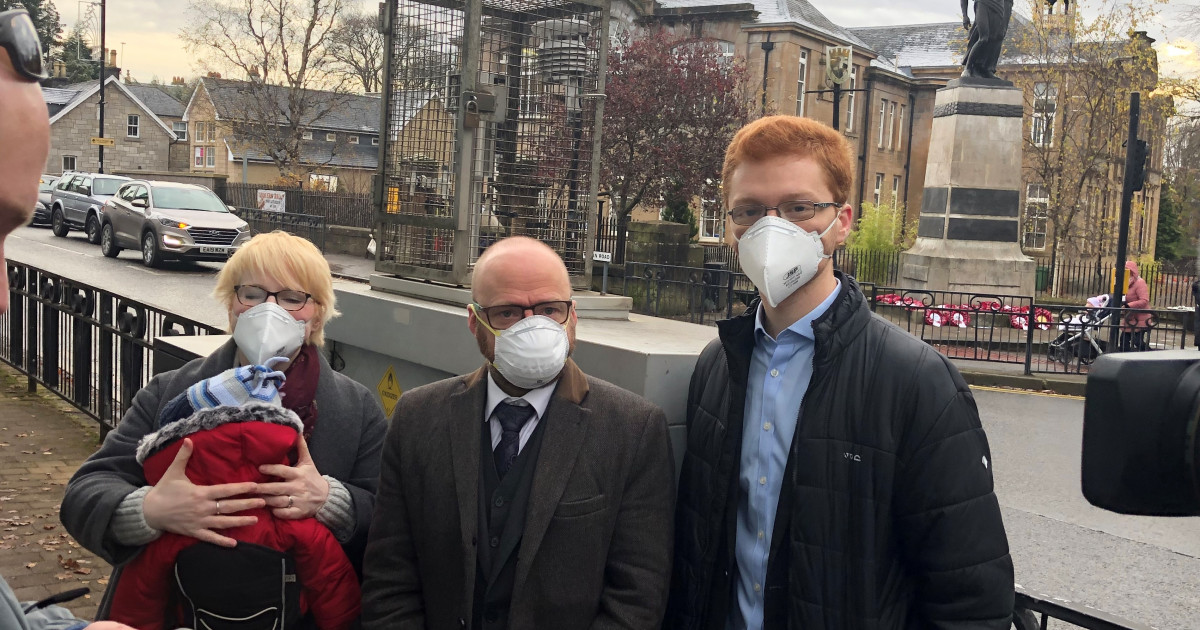Tax on polluting SUVs would protect public health and planet

Heavily polluting cars such as ‘sport utility vehicles’(SUVs) should be taxed more to stem the growth in air pollution, according to the Scottish Greens.
The party proposes to double the first-year vehicle excise duty (VED) on all vehicles producing over 111g of CO2 per kilometre.
This would mean a new Land Rover Range Rover Evoque would be taxed £1,060 in the first year instead of £530.
The call comes after research from the International Energy Agency showed that SUVs now account for 40% of new car sales, with increasing demand nullifying any reductions in CO2 emissions made by people switching to electric vehicles.
Coupled with Tory reforms to vehicle excise duty in 2017 and the freeze in fuel duty, Westminster has overseen a massive increase in traffic and climate emissions.
Commenting from the air pollution monitor at Bearsden cross, which has seen the legal limit of traffic fumes breached twice this year, Scottish Greens co-leader Patrick Harvie said: “It’s a climate emergency, and traffic emissions are going up. Growing demand for Chelsea tractors has been the second largest contributor to the increase in global CO2 emissions this decade.
“We urgently need to curb that growth, especially with more and more evidence linking traffic fumes with cancer, heart disease, asthma, strokes and more.
“For the planet and public health, Scottish Greens propose doubling the tax on the most polluting vehicles for their first Vehicle Excise Duty (VED).
“This could generate over £500 million a year across the UK to fund measures to tackle air pollution. Scotland’s share would be £50m, which Greens would invest in things like Low Emission Zones.
“The Scottish and UK Governments have pledged to end the sales of diesel and petrol cars, but as usual, neither are taking any action to deliver their promises. Only a vote for the Scottish Greens will demand climate action.”
The growth in demand for SUVs were the second-largest contributor to the increase in global CO2 emissions since 2010 after the power sector, but ahead of heavy industry.